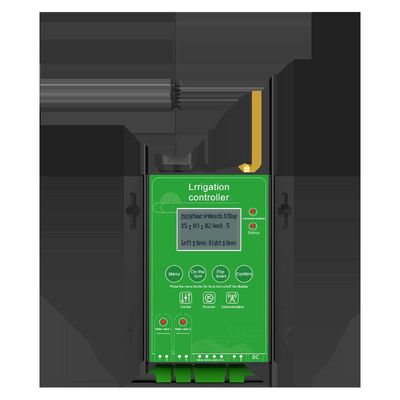

- Home
- Companies
- Soil Sensors & Weather Detectors for ...
- Articles
- Enhancing Crop Yield through Advanced ...

Enhancing Crop Yield through Advanced Irrigation Controllers
Introduction
Agriculture is the lifeblood of our civilization, providing sustenance and resources essential for human survival. In the pursuit of sustainable and efficient agricultural practices, advanced irrigation controllers have emerged as a transformative technology with the potential to enhance crop yield while promoting water conservation. This article explores the multifaceted role of advanced irrigation controllers in modern agriculture and their impact on optimizing crop production.
The Evolution of Irrigation Systems
Irrigation has been a cornerstone of agriculture for millennia, enabling farmers to supplement natural rainfall and sustain crop growth. Traditional irrigation methods, such as flooding and furrow irrigation, have given way to more sophisticated systems, including drip irrigation, sprinkler systems, and pivot irrigation. While these systems represent significant advancements, the integration of advanced irrigation controllers further revolutionizes water management in agriculture.
Precision Water Delivery
Advanced irrigation controllers leverage cutting-edge technologies to precisely regulate the timing, duration, and volume of water applied to crops. By incorporating weather forecasts, soil moisture sensors, and evapotranspiration data, these controllers enable farmers to tailor irrigation schedules to meet the specific needs of their crops. This precision water delivery minimizes water waste, reduces energy consumption, and optimizes plant uptake of moisture, ultimately leading to improved crop yield.
Adaptive Irrigation Strategies
Incorporating adaptive features, advanced irrigation controllers can dynamically adjust irrigation parameters in response to real-time environmental conditions. For instance, during periods of high humidity or reduced evapotranspiration, the controllers can intelligently reduce irrigation frequency or volume, conserving water without compromising crop health. Conversely, in arid conditions or during critical growth stages, the controllers can ramp up water delivery to meet the increased demands of the crops.
Integration of Sensor Technologies
The synergy between advanced irrigation controllers and sensor technologies, such as soil moisture sensors and weather stations, enables data-driven decision-making in irrigation management. These sensors provide essential inputs to the controllers, allowing for continuous monitoring of soil moisture levels, weather patterns, and plant water requirements. By integrating sensor data, farmers can fine-tune their irrigation strategies, prevent overwatering or underwatering, and optimize resource utilization.
Energy Efficiency and Cost Savings
Advanced irrigation controllers contribute to energy efficiency by optimizing pump operation and reducing overall water usage. By synchronizing irrigation schedules with off-peak electricity hours and employing energy-efficient pumping mechanisms, these controllers help minimize operational costs for farmers while promoting sustainable energy practices. Additionally, the water savings achieved through precise irrigation scheduling translate into cost reductions and long-term economic benefits.
Remote Monitoring and Control
The advent of smart agriculture has facilitated remote monitoring and control capabilities for advanced irrigation systems. Farmers can access and manage their irrigation controllers through mobile applications or web-based platforms, enabling real-time oversight of irrigation activities from anywhere with internet connectivity. This remote accessibility empowers farmers to respond swiftly to changing conditions, troubleshoot issues, and optimize irrigation remotely.
